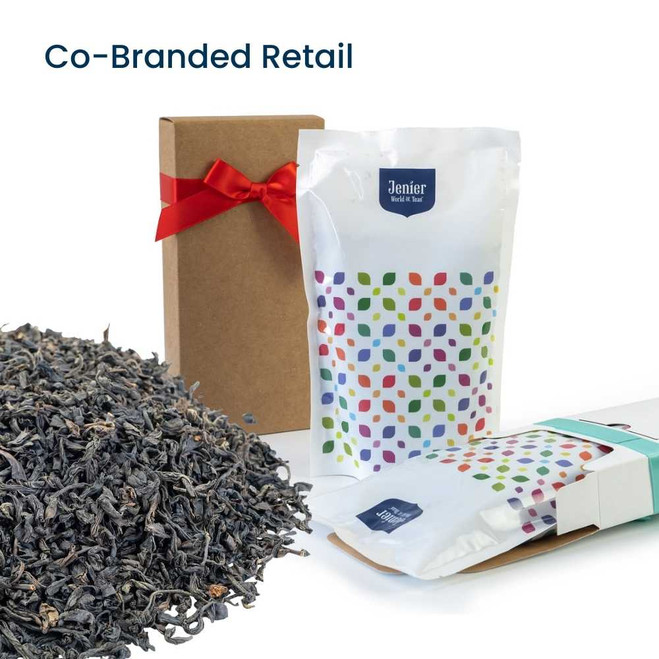Lapsang Souchong is a black tea that has a wonderful, smooth, and crisp taste that produces an amazing aroma of distintive smoky pine fires. It has an acquired taste for some, depending on your palate, but if you like Lapsang Souchong, we feel sure you'll enjoy this special tea from Fujian.
What does 'Souchong' mean?
In the regional dialect of Fukienese, the word 'souchong' means a sub-variety of tea leaf. In practical terms, more mature leaves are hand-picked from smaller leaf tea bushes during peak harvest time, which normally occurs around early May.
Where is traditional Lapsang made?
The tea bushes used to make traditional Lapsang are grown in the Fujian Province of the Xingchun region of mainland China. Grown between 1500 - 4900 feet above sea level, the varied daytime and nighttime temperatures are ideal for producing leaves full of nutrients and flavour. It is not just the leaves that give Lapsang Souchong it's characteristic smoky flavour, but the traditional production process that has been used for years.
Stage 1: Orthodox Plucking. More mature tea leaves are selected and hand-plucked in early May.
Stage 2: Withering. As the weather can be quite wet, withering more often than not takes place indoors. This is when the leaves are laid out to dry naturally.
Stage 3: Rolling. The tea makers begin the rolling process by hand, carefully pressing the leaves together to start the oxidation process before rolling machines take over the process.
Stage 4: Fermentation. Different from oxidation, this process is used to allow the natural enzymes in the leaves to begin fermentation. The leaves are packed tightly into bamboo baskets, and thick cloths are placed on top of the leaves to help keep the heat in and promote the fermentation process. The leaves are left fermenting until they begin to turn a wonderful yellow-red colour and emit a sweet, pleasant aroma.
Stage 5: Pan Frying. This is an unusual stage in the making of black tea and is unique to Lapsang Souchong. The reason heat is applied in this way is to stop the enzyme activity from continuing, thus stopping any further fermentation. By doing this, the fermented leaves keep their colour, sweetness, and robust flavour.
Stage 6: Re-rolling. The leaves are re-rolled into taut strips.
Stage 7: Smoking. This stage is where the leaves absorb their distinctive smoky flavour. Large bamboo-slatted seives used to hold the leaves are lifted above fires of smoking pinewood. The drying and smoking process continues until the leaves become thick, glossy, and full of their characteristic, smoky aroma and taste.
- INGREDIENTS:
- Luxury Black Tea
- ORIGIN:
- Fujian Province, China. Grown: 3500 - 5000 ft above sea level
- CAFFEINE:
- Approx between 27- 35mg per cup
- LEAVES:
- Orthodox Special Leaf Lapsang Souchong
- AROMA:
- Pine and Oak Fire
- COLOUR:
- Bright infusion with reddish hues
- TASTE:
- Somewhat an acquired taste but smooth and crisp smokey flavour
- WELL BEING:
- Invigorating
- MENU GUIDE:
- Great Addition
- FLAVOUR:
- Smoky
- STRENGTH:
- Full Bodied
- CAFFEINE CONTENT:
- Moderate
- HARMONISATION CODE < 3Kg:
- 0902300000
- HARMONISATION CODE > 3Kg:
- 0902400000
1 Review Hide Reviews Show Reviews
-
Lapsang
Great smokiness. Give it the full amount of time to brew,then enjoy.










